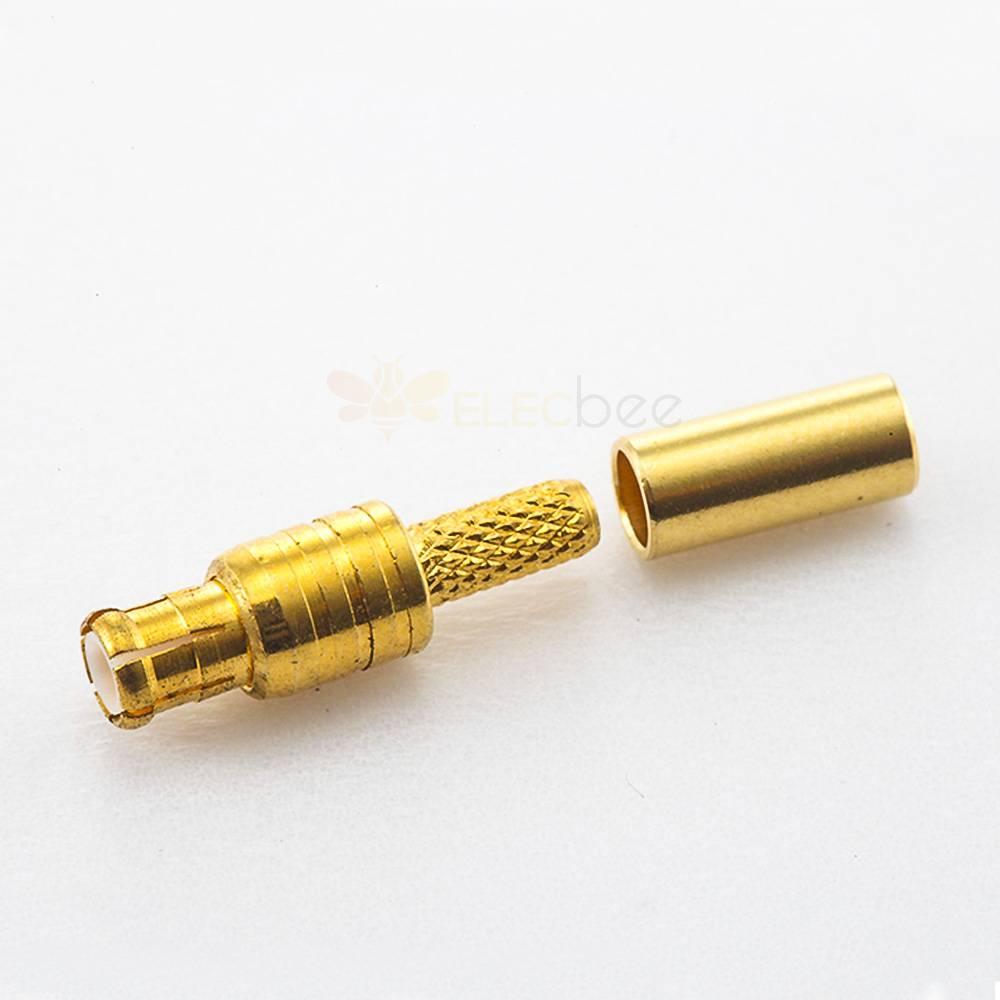A medida que la tecnología continúa evolucionando, la necesidad de una conectividad RF confiable y eficiente se vuelve cada vez más importante. Una solución que ha ganado popularidad en los últimos años es laConector MCX. A pesar de su pequeño tamaño, el conector MCX ofrece una poderosa solución para conectar dispositivos RF, particularmente en aplicaciones donde el espacio es limitado. En este artículo, exploraremos el conector MCX en detalle, incluido su diseño, aplicaciones, ventajas y limitaciones.
¿Qué es el conector MCX?
El conector MCX es un tipo deconector de radiofrecuenciaque se usa comúnmente en aplicaciones donde el espacio es escaso. Es un conector coaxial en miniatura que tiene un diseño a presión, con un diámetro de aproximadamente 5,1 mm. El conector MCX tiene un diseño similar al de otros conectores coaxiales, con un pin central rodeado por un conductor externo, generalmente una funda metálica roscada. Proporciona una conexión segura y confiable entre dispositivos de RF, con una impedancia característica de 50 ohmios.

Aplicaciones del Conector MCX
El conector MCX se usa comúnmente en varias aplicaciones, incluidos los receptores GPS, las LAN inalámbricas, los equipos de prueba y otros tipos de dispositivos de comunicación. Su pequeño tamaño lo hace particularmente adecuado para su uso en dispositivos portátiles y de mano, donde el espacio es primordial. El conector MCX también se usa comúnmente en aplicaciones de alta frecuencia, donde su baja pérdida de inserción y alta pérdida de retorno son beneficiosas.
Ventajas del Conector MCX
Una de las principales ventajas del conector MCX es su pequeño tamaño. Esto lo convierte en una solución ideal para conectar dispositivos RF en aplicaciones donde el espacio es limitado. Además, el conector MCX ofrece baja pérdida de inserción y alta pérdida de retorno, que son factores importantes para mantener la integridad de la señal y minimizar la pérdida de señal. El diseño a presión del conector MCX también facilita la instalación y extracción, lo que puede ahorrar tiempo y esfuerzo durante el montaje y el mantenimiento.
Limitaciones del conector MCX
A pesar de sus muchas ventajas, el conector MCX tiene algunas limitaciones. Una de las principales limitaciones es su capacidad de manejo de energía, que es inferior a la de otros conectores coaxiales como el conector SMA. Esto significa que el conector MCX puede no ser adecuado para su uso en aplicaciones de alta potencia. Además, el diseño a presión del conector MCX puede no ser tan seguro como otros tipos de conectores, particularmente en aplicaciones donde el conector está sujeto a vibraciones u otros tipos de tensión mecánica.
Conclusión
El conector MCX ofrece una poderosa solución para conectar dispositivos RF en aplicaciones donde el espacio es escaso. Su tamaño pequeño, baja pérdida de inserción y alta pérdida de retorno lo convierten en una solución ideal para dispositivos portátiles y de mano, así como para aplicaciones de alta frecuencia. Sin embargo, su menor capacidad de manejo de potencia y su diseño a presión pueden limitar su uso en ciertas aplicaciones. Al comprender el diseño, las aplicaciones, las ventajas y las limitaciones del conector MCX, los ingenieros y diseñadores pueden tomar decisiones informadas sobre si este conector es la solución adecuada para sus necesidades específicas.






